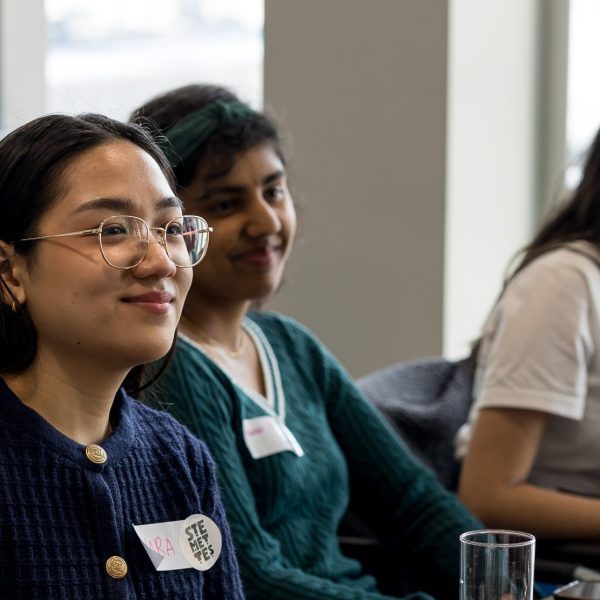Rachael joined MI5 as an intern. Then she returned to the Technology Graduates Development Programme (TGDP). Here, she reflects on the opportunities and skills she developed before joining and how they help her now.
In Year 9, I handed in some science work and my teacher asked me if my parents were chemists. Sometimes, a case of someone saying the right thing at the right time makes it all fall into place. That compliment filled me with pride and broke through some of my imposter syndrome. It was the moment I thought, I could be good at science!
My mum has a clerical job and my dad is self-employed in a trade. At school, I had friends with parents who seemed to have access to privileged knowledge. These things felt like unspoken rules and interview codes. They could pass on the secrets of a successful career in law or medicine so that my friends could follow in their footsteps. Not everyone has parents or colleagues, that can coach them through the process of applying for further education or going into the world of work – but that isn’t a barrier. There are lots of things you can do to set yourself up for success.
I’ve found lots of opportunities to expand my knowledge and understanding. When I was at university, I got a job at the student bar which led me to gain some unexpected new skills. I developed my ability to negotiate and to be diplomatic in difficult situations. There were also changing requirements, especially as it closed and re-opened during lockdown. I got involved with COVID testing, which introduced me to people with different backgrounds, opinions and lifestyles. I learned so much from these colleagues by listening to their life and work stories.
Not all work experience needs to be strictly ‘scientific’ or learning academic to be valuable – so many skills and behaviours developed in daily life are transferrable to competency evidence at interview and add value on the job!

In my second year, I took a chance and applied for MI5’s 11-week Technical Internship. What followed was an absolute whirlwind of new concepts and practical learning, and I took so much away from it, including a salary! At the end, there was an interview for the graduate scheme. It was such a relief knowing I could complete my final year of university without the uncertainty or pressure of applications.
Returning to the Tech Grad Development Programme was a change of pace and scale. You’re taking these new skills and deploying them on more sophisticated pieces of work throughout four six-month placements in different teams. With an additional year of personal growth and reflection behind me, I had more initiative and confidence to throw myself into self-guided learning and the responsibility for these independent projects.
On the programme, I’ve grown into the role of Business Analyst. I gather requirements, prioritise tech development, test and pilot new products to ensure a good user experience and seek to understand stakeholders’ problems to set us in the right direction. I’ve brought my analytical thinking from my STEM degree and can turn business needs into tech requests. It’s working in technology, without the need to be ‘techy’. And my not-so-secret weapon for success? A to-do list.
I owe a large part of my professional development to working in blended tech teams and with STEM specialists, expanding my language and understanding to deliver great outcomes.
Sometimes the path to finding your niche isn’t always clear. That’s why it’s important to trust the process and throw yourself into opportunities that come your way. I still surprise myself when I realise most obstacles to working and thriving in tech are eliminated with a little self-belief. And that takes me back to those kind words I received from my teacher as a teenager, reminding me of how far I’ve come.



